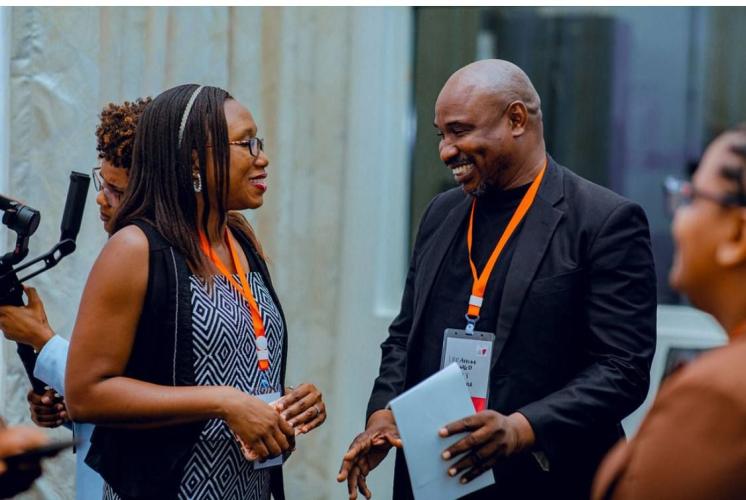
I am back from the African School on Internet Governance (AfriSIG) 2025, held at the iconic Julius Nyerere International Convention Centre in the vibrant city of Dar es Salaam in The United Republic of Tanzania, and I can confidently say: my mind is full, my heart is full, and my digital rights advocacy toolkit is bursting!
AfriSIG 2025 was far more than a course. It was a launchpad into Africa’s evolving internet governance community. Every day brought fresh, thought-provoking conversations around AI, data governance, cybersecurity, digital rights and meaningful access. As someone grounded in the civil society space, I found it both validating and energising to explore how these topics intersect with equity, access and justice – especially for women and marginalised communities.
Know what one of my highlights was? The practicum. Drafting a joint policy proposal with a team of policy makers, tech experts, parliamentarians and fellow civil society actors across the continent was a real-time lesson in multistakeholder dialogue and negotiation. This joint policy proposal will contribute to shaping the African Union Data Policy Framework. It was a powerful reminder of what meaningful multistakeholder engagement across the continent can achieve.
Was it challenging? Absolutely. It grounded our learning in practical action and sharpened our collective voice and skills in shaping Africa’s digital future. The midnight candle had to be burned to ensure that the policy proposal was not only reflective of our diverse perspectives but also actionable, inclusive and aligned with the digital aspirations of the continent.
Beyond the curriculum, AfriSIG offered community. I connected with change-makers from every corner of the continent – from parliamentarians and regulators to grassroots organisers and technologists – all united by the vision of an open, inclusive and rights-respecting internet.
AfriSIG was also filled with vibrant and fun conversations with individuals from all over the continent, cultural exchanges and the unbeatable warmth of Tanzanian hospitality.
AfriSIG is not just a school; it is a movement. It is a springboard into meaningful engagement with internet governance. I am walking away with sharper tools, deeper connections and a renewed commitment to advancing digital justice. It was a transformative space where Africa’s digital future was interrogated, reimagined and co-created.
I am honoured to be part of this growing community of African digital rights advocates.
To the incredible facilitators – Anriette Esterhuysen, Peace Oliver Amuge, Fola Odufuwa, Edetaen Ojo, Mpho Moyo, Paula Martins – and the organisers: the Association for Progressive Communications, in partnership with the African Union, the United Nations Economic Commission for Africa, Research ICT Africa, and the Government of Tanzania, thank you.
Peninah Susan Igaga (Barefootlaw, Uganda) is passionate about the intersection of law, technology and social justice. As a dedicated leader in feminist advocacy and a contributor to key digital rights initiatives, her work focuses on bridging the gender digital divide, amplifying digital rights and empowering underrepresented communities. Her original blog was shared on LinkedIn.
The 13th annual African School on Internet Governance (AfriSIG) took place from 23 to 28 May 2025 in Dar es Salaam, United Republic of Tanzania, and was convened by the Association for Progressive Communications (APC), the African Union Commission’s Information Society Division, and Research ICT Africa (RIA), in collaboration with UNECA and the UN IGF Parliamentary Track.
